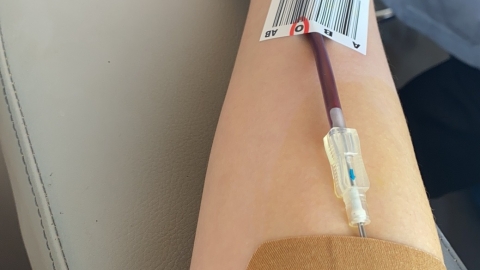Can individuals with amenorrhea donate blood?
Amenorrheic individuals can donate blood when their physical indicators are normal and there are no other contraindications to blood donation. However, if amenorrhea is caused by diseases or accompanied by conditions such as anemia or infection, blood donation is not allowed. Detailed analysis is as follows:

If amenorrhea is due to physiological causes, such as menopause, and there are no underlying diseases, with routine blood tests showing normal hemoglobin and red blood cell levels, normal coagulation function, and no abnormalities in infectious disease screening, donating blood will not cause adverse effects. Healthy adults, even in a state of amenorrhea, can replenish lost blood through their own hematopoietic systems if their bodily functions are otherwise good.
When amenorrhea is caused by pathological factors, such as polycystic ovary syndrome, pituitary tumors, or endometrial damage, or if it is accompanied by anemia or infection, blood donation is not advisable. In diseased states, the body is already abnormal, and donating blood would increase the physical burden and interfere with recovery. Blood from individuals with anemia does not meet clinical blood usage standards, and donating blood during an infection period may increase the risk of transmitting infectious diseases through blood.
Prior to planning to donate blood, individuals experiencing amenorrhea should determine the cause of the amenorrhea, undergo a comprehensive physical examination, confirm the absence of underlying diseases and normal physical indicators, and truthfully inform the blood donation center staff of their health status.




